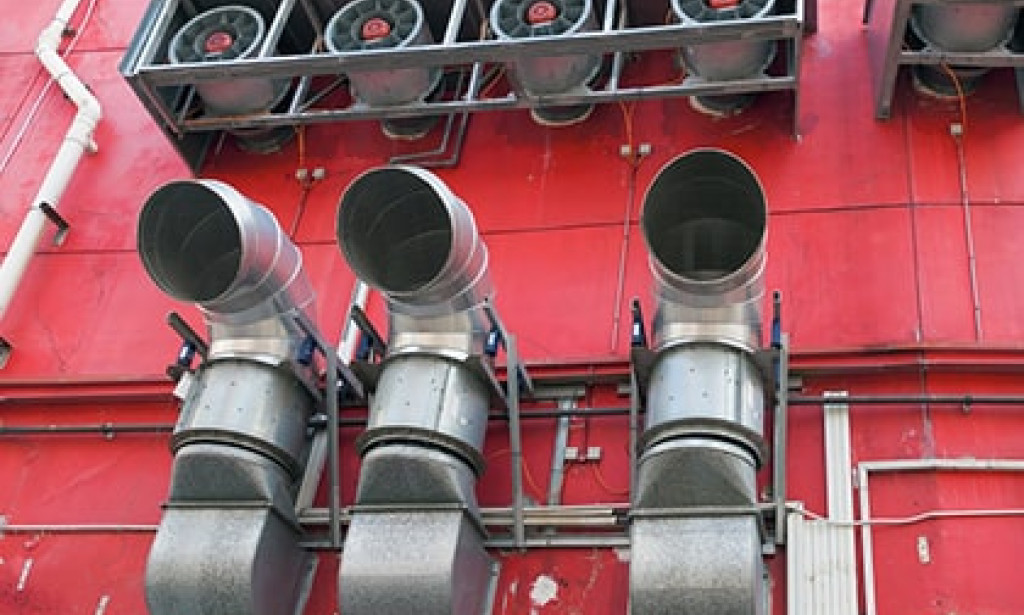The kitchen is the heart of every home, where delicious meals are prepared with love. However, cooking can release smoke, odors, and airborne grease particles, which can affect indoor air quality and leave a lingering scent. This is where a kitchen exhaust system becomes essential. A well-designed and properly functioning exhaust system not only improves air quality but also plays a crucial role in maintaining a clean and safe kitchen environment. In this blog, we will explore the importance of a kitchen exhaust system and how it can maximize efficiency while ensuring safety.
Understanding Kitchen Exhaust Systems:
A kitchen exhaust system consists of a range hood, ductwork, and an exhaust fan. The range hood is installed above the cooking area and acts as a collection point for smoke, steam, grease, and odors. The ductwork connects the range hood to the exterior of the building, allowing the expelled air to be safely discharged outside. The exhaust fan is responsible for pulling the contaminated air through the range hood and ductwork, creating a negative pressure zone that facilitates efficient extraction.
Importance of Proper Ventilation:
Effective ventilation is crucial in a kitchen to maintain good indoor air quality. A kitchen exhaust system helps to remove pollutants and excess heat, reducing the risk of respiratory issues and discomfort. Proper ventilation also prevents the buildup of moisture, which can lead to mold growth and damage to cabinets and walls. Moreover, a well-ventilated kitchen enhances the overall cooking experience by minimizing the lingering smells and smoke that can permeate the entire home.
Maximizing Efficiency:
To ensure optimal performance, it is important to choose the right size and type of kitchen exhaust system for your needs. The size of the range hood should correspond to the size of the cooking surface, ensuring that it effectively captures the pollutants generated during cooking. Additionally, selecting an exhaust fan with sufficient airflow capacity will enhance the system's efficiency.
Regular maintenance is key to maximizing the efficiency of a kitchen exhaust system. Filters should be cleaned or replaced regularly to prevent grease buildup, which can reduce airflow and compromise performance. Ductwork should also be inspected periodically to identify and remove any blockages or leaks.
Ensuring Safety:
A kitchen exhaust system plays a vital role in ensuring the safety of your home. The accumulation of grease in the ductwork poses a significant fire hazard. Regular cleaning of the ducts, in accordance with local regulations, is crucial to remove grease deposits and reduce the risk of fire. It is recommended to hire professional duct cleaning services to ensure a thorough and safe cleaning process.
Furthermore, modern kitchen exhaust systems often include features like grease filters and fire suppression systems, providing an added layer of protection against potential fire incidents. Investing in these safety features can bring peace of mind and safeguard your home and loved ones.
Conclusion:
A well-designed and properly maintained kitchen exhaust system is an essential component of any kitchen. It not only improves indoor air quality by removing pollutants but also enhances safety by reducing the risk of fire hazards. By maximizing efficiency and ensuring proper ventilation, a kitchen exhaust system creates a comfortable cooking environment and preserves the integrity of your home. Remember to choose the right system, perform regular maintenance, and prioritize safety to fully harness the benefits of a well-functioning kitchen exhaust system.



You must be logged in to post a comment.